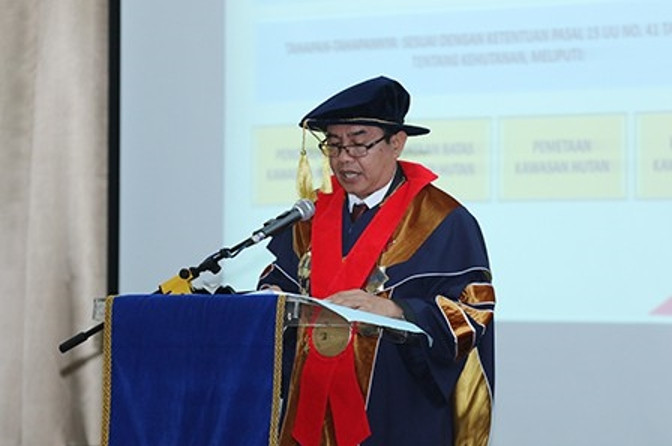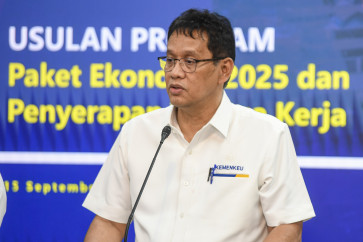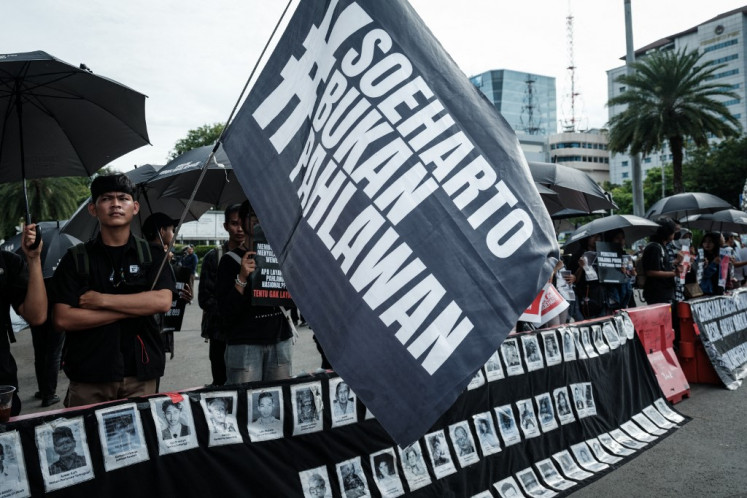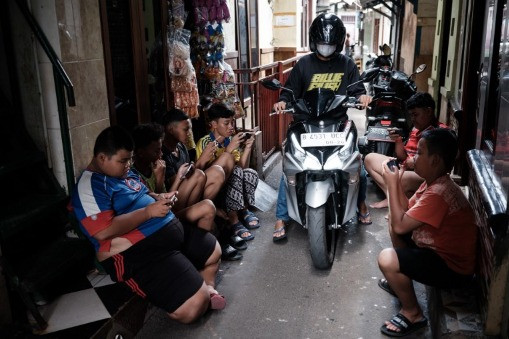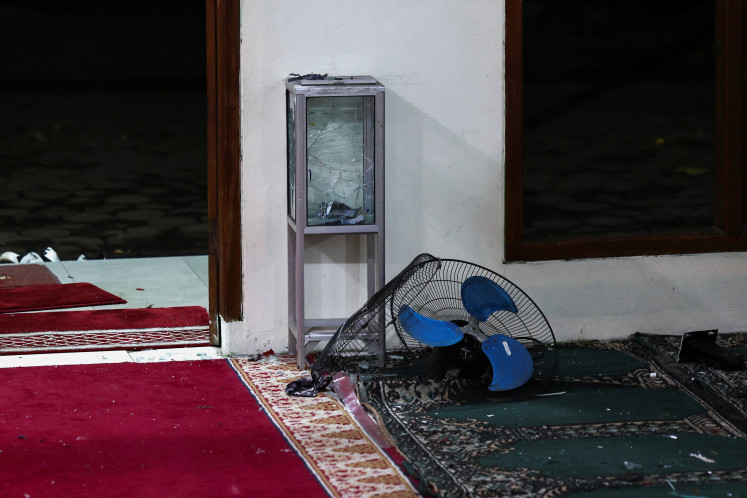Popular Reads
Top Results
Can't find what you're looking for?
View all search resultsPopular Reads
Top Results
Can't find what you're looking for?
View all search resultsComply with emergency restrictions for common good: Experts
Change text size
Gift Premium Articles
to Anyone
T
he government’s latest decision to fully impose emergency public activity restrictions (PPKM Darurat) from July 3 to 20 in Java and Bali should be seen as efforts to curb the current surge in COVID-19 infections and therefore, requires people’s willingness and comprehension to comply, said a legal expert.
Agus Surono, a legal expert at Al Azhar University, said the temporary closing of many public areas as a consequences of the policy was in line with the idea of preventing further transmission.
“People should accept the situation and realize that all of these [measures] are for the common good,” he said as quoted in a press statement sent to The Jakarta Post on Tuesday.
He added that the emergency restrictions were part of the government’s efforts to reach herd immunity, which was done through mass vaccination.
However, Agus also warned that the central government’s restriction policy must be strictly followed by regional administrations, down to the community level.
“Negligence on the part of regional leaders should be met with administrative sanctions in the form of a written reprimand — two at the most,” he said.
A third violation should lead to the regional leader’s temporary dismissal, as regulated by Law No. 23/2014 on regional administrations, he added.
The first day of the PPKM Darurat was marred with violations, with Pancoran Mas subdistrict head Suganda holding a wedding party that drew more than the allowed 30 guests.
Suganda initially insisted that the wedding party had complied with emergency regulations and he had committed no violations.
However, the Depok Police and Depok Prosecutors Office thought differently and claimed to have enough evidence that Suganda was in violation of the PPKM Darurat policy.
As quoted by merdeka.com, Depok Prosecutors Office head Sri Kuncoro said the police had named Suganda a suspect and therefore, was the subject of further questioning by prosecutors.
Suganda would the first subdistrict head to be held responsible for violating emergency restrictions.
The first day of the PPKM Darurat also witnessed large crowds of people commuting through Jakarta as their work places had still ordered them to be at the office.
Jakarta Military Regional Commander Maj. Gen. Mulyo Aji, during a joint-field inspection, said he suspected that some companies had purposely neglected the emergency restrictions by ordering their employees to still come to the office — which violates the government’s orders that all non-essential and critical sector employees fully work from home.
“We will investigate this and those violating companies will be reprimanded,” he said as quoted by tempo.co.
The emergency restrictions stipulate the temporary closing of all shopping malls and trade centers, as well as houses of worship and public areas.
All events, including music concerts and sporting events, must also be postponed as they can potentially draw crowds.
As for restaurants and other forms of food and beverage outlets, they are only allowed to serve take-out orders. Along with supermarkets, their operating hours are limited to 8 p.m.
Essential businesses, like banks and health facilities, are allowed to operate at 50 percent capacity, while non-essential businesses must order their employees to work from home.
Pharmacies and health facilities may stay open 24 hours a day.

